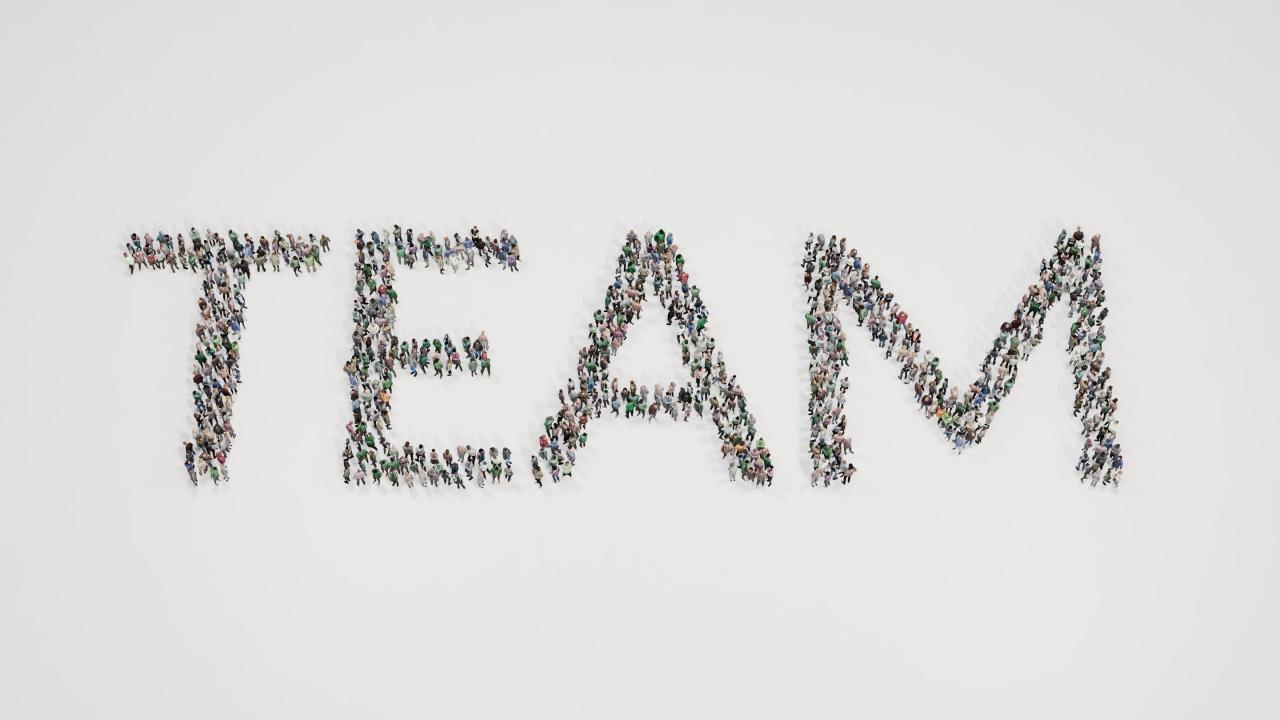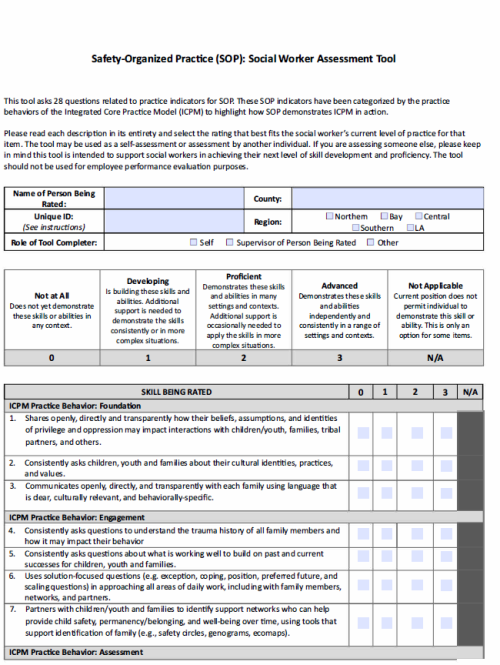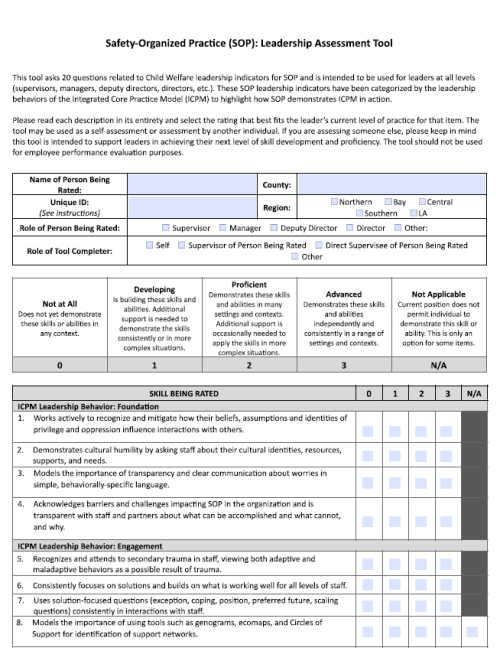
Building High-Fidelity Pathways in Safety Organized Practice
Assessing for SOP Fidelity at All Levels of the Organization
Safety Organized Practice (SOP) thrives within counties when social workers, supervisors and senior leaders have access to the same resources to support the practice and are thus communicating from a place of shared understanding in their collective drive to deliver the best child welfare services to children and families. To evaluate and support fidelity to SOP throughout the organization, the statewide Safety Organized Practice Toolkit offers several key tools.
What's in the Kit?

For Social Workers and Supervisors
The Social Worker Assessment Tool is intended to be completed by a child welfare supervisor to assess their staff; it can also be used as a self-assessment tool for social worker self-reflection. It is strongly recommended that supervisors regularly observe workers to be able to accurately evaluate their practice. Supervisors should be able to complete the tool based on their regular interactions with workers and observation of workers’ interactions with children, youth and families. A best practice approach is to have both the social worker and their supervisor complete the tool evaluating the social worker’s practice, which can inform a reflective coaching conversation around areas of similarity and difference in ratings. This tool can also be utilized to guide coaching around SOP skill enhancement, with the social worker completing the tool and sharing the results with their coach.

For Senior Leaders
The Leadership Assessment Tool is intended to assess supervisors, managers, directors and other leaders in child welfare agencies. This tool can be used for completion by the individual’s direct supervisor, by direct reports, by self-assessment, and/or to inform a reflective coaching process. The parallel process of leaders demonstrating SOP skills with staff is critical to social workers demonstrating these skills with children and families.
For the Entire Organization
The SOP Organizational Assessment Tool is intended to evaluate SOP at the level of the entire agency. Rather than focusing on an individual’s actions, it looks at the systems and structures that are in place to support SOP as standard practice across the agency. An organizational climate that supports SOP is vital to full implementation and sustainability of the practice.
For More
To learn more about each of these tools and how they can best be utilized throughout your organization, be sure to access the SOP Tools Overview document within the SOP Toolkit. You can also browse these and additional fidelity and evaluation tools at the Fidelity and Evaluation section of the Toolkit website.
Stories from the Field
Celebrating SOP Success in Ventura County

In 2017, Ventura County began a new SOP lab series in the hopes of providing an experience that would allow staff to work together, learn from each other and/or pick up new tools or ideas that could aid in everyday social work practice, while supporting successful implementation and integration of SOP, Structured Decision Making (SDM), and the Integrated Core Practice Model (ICPM). More than six years later, the success of this series is evident.
“The SOP Lab Series was originally designed and led by frontline staff,” said Katie Andrews, an administrative specialist with the County of Ventura Human Services Agency. The frontline staff involved in the initial series included social workers, supervisors and field-based case aides. Since that time, she added, “it has evolved to include staff of all levels and expanded topics to include not only SOP, but the various ways SOP, SDM, and ICPM are utilized in our work.”
In 2024, the state of this program is strong, and its success exemplified by the high participation rate among staff at all levels.
“One time per month,” said Andrews, “our agency participates in the SOP Lab Series, allowing participants to learn from real life experiences and focus on specific tools or ideas related to and supporting SOP, SDM, and ICPM. There are anywhere from 50 to 90 participants that join each month.”
Topics the SOP Learning Labs tackles includes (but has not been limited to):
- Using Child and Family Team Meetings (CFTMs) to aid in the creation of the Transitional Independent Living Plans (TILP)
- Using Harm Reduction in cases with youth identified at risk for CSEC
- Using genograms and circles of safety to aid in family finding and engagement efforts
- Family time and teaming with social workers
- Case reviewers and the documentation of SOP
- Mappings of cases to identify specific SOP tools and strategies that can be used
Share Your Own SOP Success Stories, Tips and/or Tools!
Have you developed a new SOP tool for your own county? Or do you have a success story to highlight? If you have a specific tool or a story from the field you’d like to share, you can do so through our submission form. Simply fill in the fields, attach the tool, and we’ll be in touch from there!
Since its inception in 2017, the SOP Learning Labs have also included presentations related to the following programs:
- Family time (Visitation)
- Quality Parenting Initiative (QPI)
- Resource Family Approval (RFA)
- Family Engagement/ Family Finding
- READY Team (CSEC)
- Wendy’s Wonderful Kids
- Case Reviewers
- Child and Family Team
- The Child and Adolescent Needs & Strengths (CANS)
- Youth Services (YSD)
- Permanency
- Family Preservation
- Emergency Response
- Ongoing/Family Treatment Court
Congratulations to Ventura County for their ongoing success with SOP and their SOP Learning Labs!
Reminder: The SOP Toolkit Has Moved!
Be sure to update your bookmarks and to visit the new Safety Organized Practice (SOP) Toolkit website.
Check out the SOP Toolkit blog!
Read about more Tools from the Kit and Stories from the Field on the SOP Toolkit blog.
